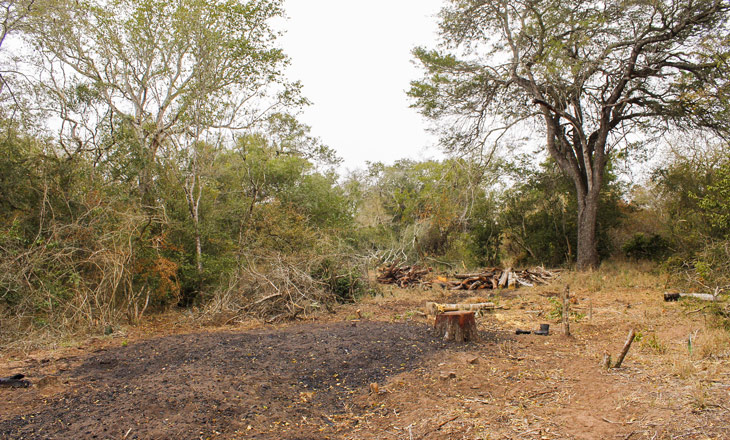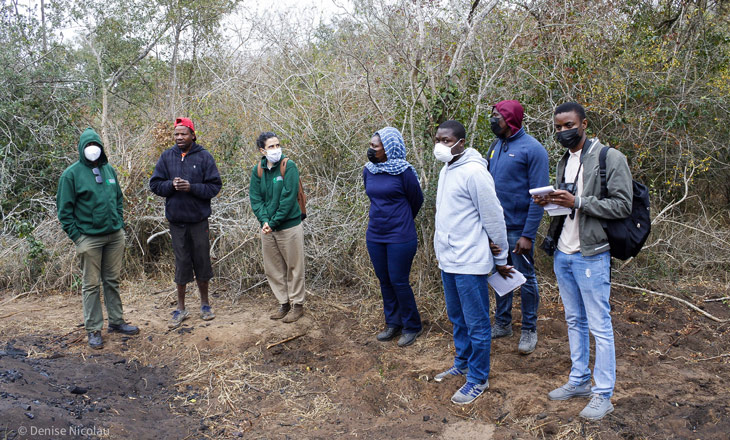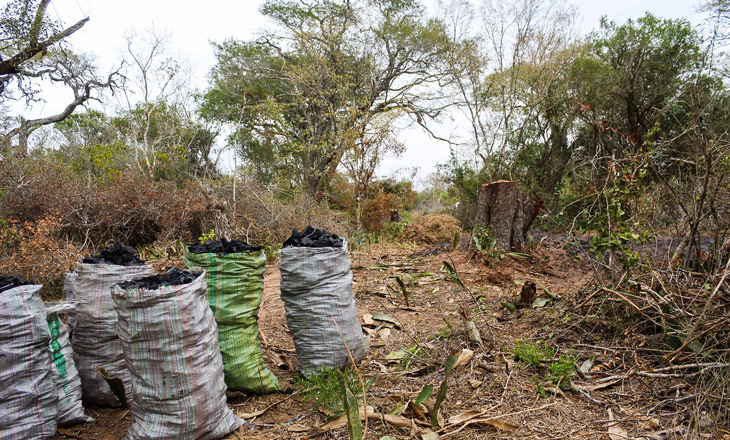The Foundation for Biodiversity Conservation (BIOFUND), in the framework of Biodiversity Offset Program, implemented with the financial support of the World Bank/Project MozBio2 and UNDP/BIOSFAC in partnership with the Wildlife Conservation Society (WCS), the National Directorate Environment (DINAB) and the National Directorate of Forests (DINAF), is implementing pilot projects to improve habitats of Maputo Special Reserve (REM) and in the Licuáti Forest Reserve (RFL), both recently declared as Key Biodiversity Areas ( KBAs) or Important Biodiversity Areas at global level. These projects aim to test the technical and financial feasibility of biodiversity offsets in Conservation Areas and in Forest Reserves in Mozambique.
Published at 20/08/2021
BIOFUND and partners carry out studies on the charcoal value chain in the Licuáti Forest Reserve and Surrounding Area
In this context, the BIOFUND has been co-financing since July this year, research about Socio-Economic and Environmental Characterization of the Charcoal Value Chain in the Licuáti Forest Reserve and Surrounding Area, carried out by Filipa Zacarias, a Phd student from University of Lisbon. This study, scheduled to end in October 2021, will provide background information on the charcoal value chain in RFL, impacts of charcoal production on the income of families in Djabula community and the impact of this activity on community development and in biodiversity conservation in that region. This research will also contribute to the design of strategies for sustainable exploitation of forest resources and in biodiversity conservation in RFL as well as the design of a restoration plan.
Biodiversity offsets are the last step in the mitigation hierarchy and represent a contribution to harmonizing economic development and biodiversity conservation in Mozambique through the reduction of anthropogenic impacts, protection and restoration of biodiversity and its ecosystem services.




